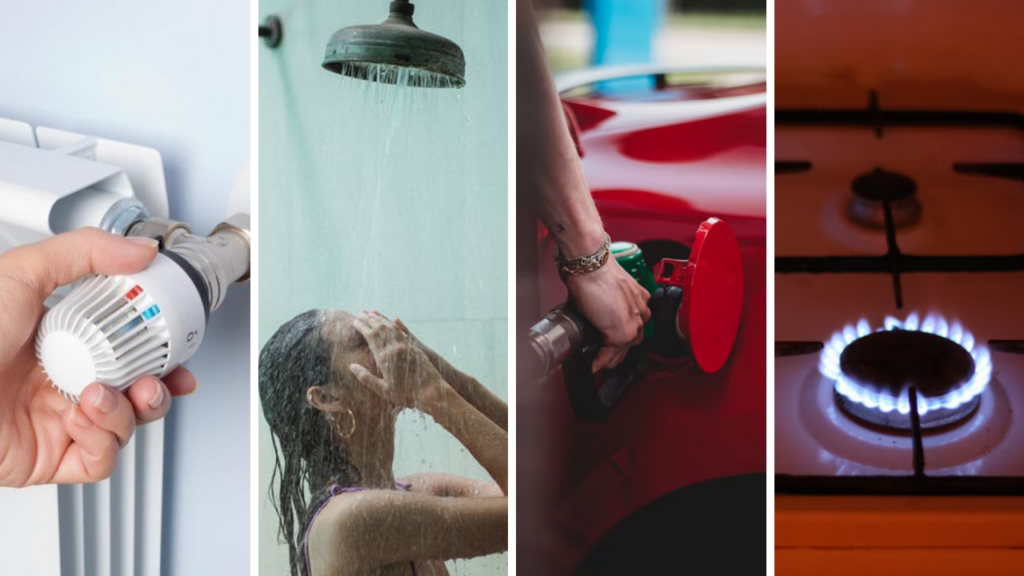In response to Europe's ongoing energy crisis, Belgium has implemented a number of measures to reduce the cost of energy, from making it cheaper to fill up a tank to a €200 reduction on people's energy bills. How are other countries tackling the situation?
The package of measures that Belgium's Federal Government announced in mid-March came into force at the start of April, and had to prevent the energy market from "becoming the Wild West," said Prime Minister Alexander De Croo.
He said that he realised the measures were "no miracle cure," but added that they are necessary until a long-term solution is found. An in-depth overview of Belgium's package of energy measures can be found here.
But how are other countries trying to keep control of the skyrocketing prices?
The Netherlands
Last weekend, the Dutch Government called on the population to take shorter showers (maximum five minutes) and set the thermostat no higher than 19°C during the day and 15°C at night.
At the beginning of March, the Government already increased the energy allowance to €800 for people with an income around the welfare level. VAT on energy dropped from 21% to 9% and the excise duty on petrol and diesel went down by 21%.
Additionally, the government also launched the National Insulation Programme to help people insulate their own homes, and to tackle poorly insulated homes quickly and intelligently.
The Government announced that it has made a total of €4 billion available for this issue, aiming to insulate 2.5 million badly-insulated homes by 2030.
France
On 1 April, a discount of 15 to 18 cents per litre at petrol stations came into effect in France, a measure that will remain in force until 31 July. All drivers can benefit, no matter the fuel that they are using. (Belgium also implemented a reduction of 17.5 cents per litre, but the measure already applies from 19 March).
France is capping gas prices and is also introducing a maximum increase of regulated electricity costs to 4%.
Germany
In Germany, the population will receive a one-off discount of €300 euros on their energy bill, which will be settled through income tax. People on social security will receive an additional allowance of €100, on top of the €100 they were already entitled to, as reported by local media.
For a period of three months: the fuel price in the country will be reduced: 30 cents per litre less for petrol, and 14 cents per litre for diesel. Lastly, Germany is reducing the price of a public transport ticket: a ticket to use regional public transport for three months will now cost €9.
Italy
The Italian Government approved a support package amounting to €4.4 billion, and reduced the price of diesel and petrol by 25 cents per litre until the end of April.
The country also made sure that those who in need will be able to pay their energy bills in instalments over two years, according to reports by Bloomberg.
Related News
- Risk of recession in Belgium is 'very real,' Voka warns
- Belgian government energy measures come into force on Friday
- European Commission outlines options to mitigate high energy prices
Additionally, Italy's energy decree introduced tax credits for "companies equipped with electricity meters with an available power of 16.5 kW or more." Lastly, specific funds will be made available for fishermen, farmers and truck drivers.
Spain
Last year, Spain’s government was one of the first to take action and at the end of March approved a new €16 billion package in aid to tackle high energy prices in the country. Around €6 billion will come as direct aid and tax cuts mostly extended from a previous package related to the Covid-19 pandemic, while the remaining €10 billion are subsidised loans.
Spaniards will get a discount of 20 cents per litre on gasoline until the end of June. The measure could be extended beyond that date, if necessary, the Government said. Additionally, the tax reduction on energy will also be extended, and the social rate will be extended to an additional 600,000 families.
Austria
The Austrian Government has released €2 billion to tackle the crisis, reports Bloomberg. Among other things, the country implemented a 50% increase in the commuting allowance, and freed up €150 million to make public transport tickets cheaper.
There will also be a reduction of approximately 90% in the tax on natural gas and electricity. Companies that want to switch to cleaner energy will be entitled to subsidies.
United Kingdom
To help people with their energy bills, the UK government has set up the Energy Bills Support Scheme. Under the scheme, households will receive a £200 (€238) reduction on their electricity costs from October, but differing from other European countries, British citizens must repay it at £40 (€48) per year, for a duration of five years from 2023.
Families who are struggling financially can also count on an additional reduction. In total, the UK government is providing £9.1 billion (€10.8 billion) in 2022 to 2023 to address the energy crisis.

